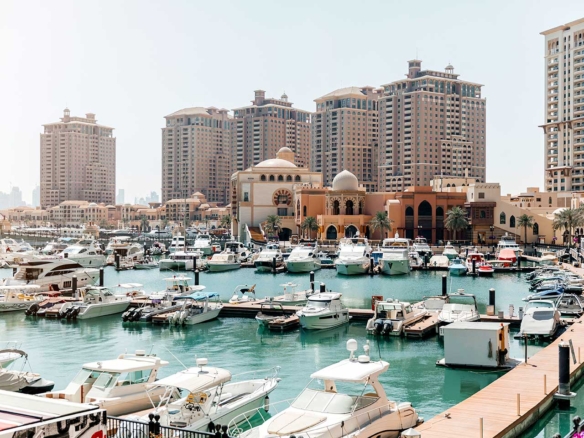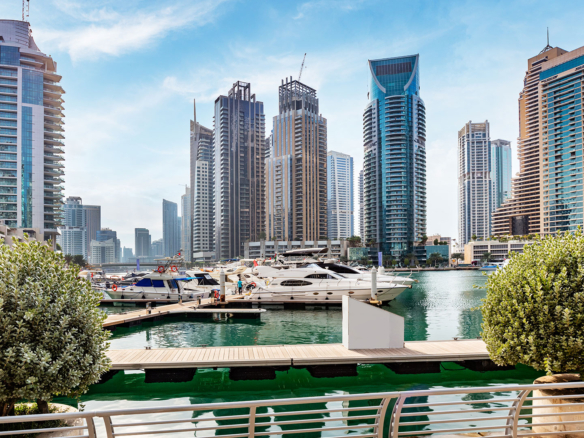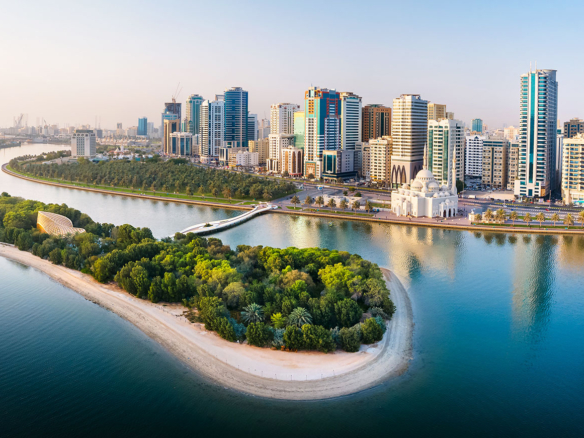The United Arab Emirates, with Dubai at its forefront, has emerged as one of the world’s most dynamic financial centers over the past two decades. This remarkable transformation from a regional trading post to a global financial powerhouse represents one of the most successful examples of strategic economic diversification in modern history. Today, Dubai stands alongside established financial capitals like London, New York, and Singapore, attracting international banks, investment firms, and fintech companies seeking to capitalize on the region’s growing importance in global finance.
Strategic Geographic Advantage
Dubai’s rise as a financial hub is fundamentally rooted in its strategic geographic position. Located at the crossroads between Europe, Asia, and Africa, the emirate serves as a natural bridge connecting major economic regions across different time zones. This positioning allows financial institutions based in Dubai to conduct business with Asian markets in the morning, European markets during midday, and American markets in the evening, providing unprecedented operational efficiency for global financial services.
The UAE’s location has historically made it a crucial stop along ancient trade routes, and this legacy continues to influence its modern financial sector. The country’s proximity to emerging markets in South Asia, Africa, and the broader Middle East positions it perfectly to serve as a gateway for international investment into these rapidly growing economies. Major multinational corporations and financial institutions have recognized this advantage, establishing their regional headquarters in Dubai to oversee operations across multiple continents.
Regulatory Excellence and Business-Friendly Environment
The UAE government has invested heavily in creating a world-class regulatory framework that meets international standards while remaining attractive to businesses. The Dubai Financial Services Authority (DFSA) oversees the Dubai International Financial Centre (DIFC), which operates under English common law and provides a regulatory environment that international financial institutions find familiar and trustworthy.
The DIFC, established in 2004, has been instrumental in Dubai’s financial sector development. This 110-acre free zone offers a comprehensive legal and regulatory framework based on international best practices, complete operational independence, and a business-friendly environment with 100% foreign ownership, zero tax on corporate income and profits, and no personal income tax. These incentives have attracted over 3,000 companies to establish operations within the DIFC, including more than 600 financial services firms.
The UAE’s commitment to regulatory excellence extends beyond just creating favorable conditions for international businesses. The country has implemented robust anti-money laundering measures, enhanced corporate governance standards, and established sophisticated dispute resolution mechanisms. The DIFC Courts, which operate independently and are staffed by internationally recognized judges, provide English-language proceedings and enforce judgments across the UAE, creating confidence among international investors and businesses.
Infrastructure and Technological Innovation
Dubai’s world-class infrastructure serves as another pillar supporting its emergence as a global financial hub. The emirate boasts state-of-the-art telecommunications networks, modern transportation systems, and cutting-edge business facilities that rival those found in established financial centers. The Dubai International Airport, one of the world’s busiest, connects the city to over 240 destinations worldwide, facilitating the movement of business professionals and capital across the globe.
The UAE has also positioned itself at the forefront of financial technology innovation. Dubai’s government has launched numerous initiatives to promote fintech development, including regulatory sandboxes that allow startups to test innovative financial products in a controlled environment. The Emirates has become a testing ground for blockchain technology, digital currencies, and artificial intelligence applications in finance, attracting tech-savvy financial services companies looking to innovate and expand their technological capabilities.
The country’s investment in smart city initiatives and digital transformation has created an ecosystem where traditional financial services can seamlessly integrate with emerging technologies. This technological sophistication has attracted international banks and financial institutions seeking to modernize their operations and reach tech-savvy consumers in the region.
Economic Diversification and Oil Independence
The UAE’s successful diversification away from oil dependency has been crucial to its financial sector development. Today, oil contributes less than 30% to Dubai’s GDP, with financial services, trade, tourism, and real estate playing increasingly important roles. This economic diversification has created a more stable and sustainable foundation for long-term growth in the financial sector.
The government’s Vision 2071 aims to make the UAE the world’s best country by its centennial, with financial services playing a central role in this ambitious plan. Substantial investments in education, infrastructure, and technology are creating a knowledge-based economy that can compete with established financial centers around the world.
Growing Regional Importance
The Middle East and North Africa region represents one of the world’s fastest-growing markets for financial services, driven by young demographics, increasing urbanization, and growing wealth. Dubai has positioned itself as the natural hub for serving this expanding market, with many international banks using the emirate as their regional headquarters for operations across the MENA region.
The UAE’s strong relationships with countries across Asia, Africa, and the Middle East have created numerous opportunities for trade finance, investment banking, and wealth management services. Dubai’s financial institutions are increasingly involved in financing major infrastructure projects across the region, from renewable energy installations to transportation networks.
Challenges and Future Outlook
Despite its remarkable success, Dubai faces ongoing challenges in its quest to become a top-tier global financial hub. Competition from established centers like Singapore and Hong Kong remains intense, and regional political instability can sometimes affect investor confidence. Additionally, the global shift toward sustainable finance and environmental, social, and governance considerations requires continued adaptation and innovation.
However, the UAE’s track record of successfully navigating challenges and adapting to changing global conditions provides confidence in its continued growth as a financial center. The country’s young leadership, commitment to innovation, and strategic investments in future technologies position it well for continued expansion in the global financial services sector.





Join The Discussion